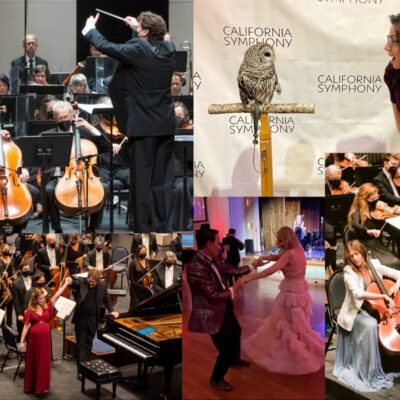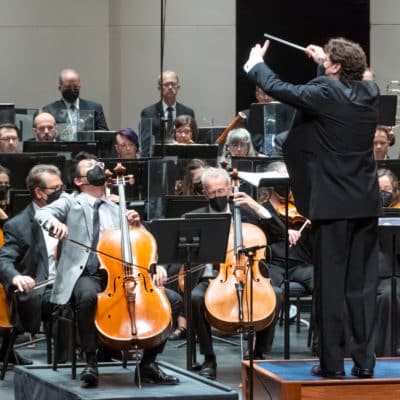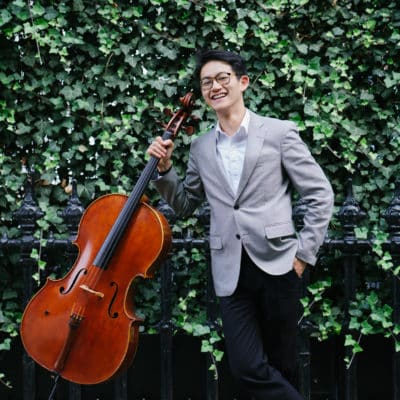
If he’d been allowed to sit down while practicing the violin as a child, Adam Golka may never have pursued his career as a pianist. Adam Golka tells us about his Texan-Polish roots, meditation, and that time he helped to avert disaster at a friend’s concert.
Tell us a bit about yourself. Where are you from?
I was born and raised in Houston, Texas, but my parents are from Warsaw, Poland. My parents left Poland for Mexico in the late 70’s because my Father won a trombone position with the Veracruz Symphony. A few years later, the orchestra bankrupted and my parents were granted asylum in the US. They have been here ever since, and thanks to them, I was born a US citizen. Another thing I’m grateful to them for is my fluent use of the Polish language. If I’m in good practice with it, I can blend in as a local while visiting or performing in Poland. However, when Polish people ask me which part of Poland I’m from, I usually tell them I’m from a tiny little village called “Hjuston, Teksas.”
What is something people might be surprised to learn about you – a special talent or hobby?
It’s certainly no talent, but meditation became a powerful part of my life a few years ago. I start everyday with a meditation and I never walk out on stage without a meditation. It always feels very good when I get my brain to slow down and when my senses heighten. I’m also interested in the body awareness method of Moshe Feldenkrais, which I find extremely useful when playing the piano. You can always send me a Feldenkrais book or video if you want to grab my attention.
When did you start playing and when did you realise you wanted to do this for a living?
I grew up in a very musical family so possibly I became a musician before my physical birth. But I technically began piano and violin lessons at 4, eventually settling on the piano for the profound reason that I hated standing up while practicing.
Any musically talented relatives?
You bet! I already mentioned my parents, but my brother Tomasz is a great conductor and composer, and his twenty-year friendship with Maestro Donato Cabrera is how I came to first know the brilliant conductor you are so lucky to enjoy here in Walnut Creek!
Nothing ever goes as planned – What’s the craziest thing that has ever happened during a performance?
That’s for sure. In fact, I’m sure that the unexpected is one of the most important ingredients in a memorable performance. We should study the score and practice our instruments endlessly (in fact we must do that); however, when it comes to the performance, each moment has its own truth which is best to dare to surrender unto. I think it’s the scariest and most wonderful thing about the job. I often feel like I exist in some sort of paradoxical state during a performance, which I cannot rationally explain.
But since you want crazy, I’ll tell you about something that happened last summer during a performance which was not my own. Nonetheless, I consider it one of my great achievements! I was attending a chamber music concert in a very old church last summer, and a stage light on a tall stand at the edge of the church balcony suddenly came loose and nearly fell down into the lower audience. It very well could have killed someone or started a fire. A colleague and I were seated right next to it and we traded holding the heavy thing, our brows covered in sweat, our arms shaking, for the 30-minute Mozart Piano Quartet. It was the only time I ever felt Mozart could have skipped a few measures in his compositions. The tumultuous applause after the performance was the most satisfying I’ve ever received, even it most of the audience didn’t mean it for us. And I don’t think the performers noticed.
Which composer, dead or alive, would you most like to meet?
Obviously Beethoven, but Haydn, Grieg or Poulenc would probably be way more fun to hang out with. And I’d rather that they be alive during this prospective meeting.
The California Symphony’s 2021-22 season opener Emperor featuring Adam Golka takes place Saturday, Sept. 18 at 7:30 PM and Sunday, Sept. 19 at 4 PM at the Lesher Center for the Arts. Tickets are $44 to $74 and subscription packages of 3 or more concerts start at $33 per concert. Buy tickets online or call or visit the Lesher Center Ticket Office at 925.943.7469, Wed – Sun, 12:00 noon to 6:00 pm.



